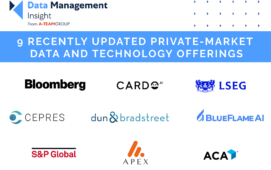
Datactics and Solidatus have made a ground-breaking technology alliance that integrates the former’s data quality and latter’s data lineage tools to manage data quality in motion. The integration helps data practitioners visualise where data quality issues are occurring, understand the business impact of poor data quality, and quickly locate and fix quality issues wherever the data occurs, in turn, reducing the time and cost of root cause analysis.
In an exclusive interview with Data Management Insight, Solidatus and Datactics noted their individual strengths and how combining these would produce more than the sum of their parts. Stuart Harvey, CEO at Datactics, said: “The integration is predicated on the desire of clients to look at data not only at rest, but also in motion. They want to measure data quality as data comes into the organisation, as well as when it flows across the organisation to see whether quality is being maintained and identify any problems.”
From a data lineage perspective, Howard Travers, head of technology alliances at Solidatus, said: “This is not just about creating a lineage map and being able to edit it. The integration provides observability, flags data and makes it possible to question the data. A problem can be seen in a data flow and its importance can be considered; perhaps it would have an impact on a regulatory report and needs to be prioritised. Using Solidatus data location coordinates to redeploy Datactics data quality rules wherever the data resides, reduces the time and cost of root cause analysis that in other circumstances can take months.”
While Solidatus scans metadata and Datactics data, the integration includes a unique path key that allows both solutions to understand where data resides and where it is failing. Datactics uses a Rest API and the key to push data quality results to Solidatus, which visualises data quality in motion, and provides lineage and data coordinates of the various sources of the data. The same data quality rules in Datactics can then be redeployed across each origin of the data to discover the root cause of the problem.
Harvey commented: “Clients want to be able to not just identify data quality problems, but to identify and fix them rapidly. Visualisation and lineage in Solidatus support this. This is huge for data managers.”
The integration of the Datactics and Solidatus tools is already finding success, with users including a Global Systematically Important Bank (G-SIB) using it for BCBS 239 reporting. “The integration has been proved in the field and is successful. This validates what we have done,” concluded Travers.
Subscribe to our newsletter





